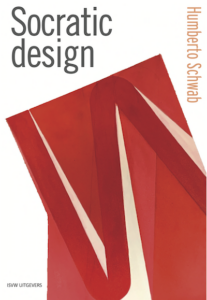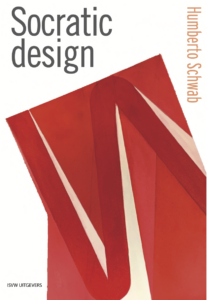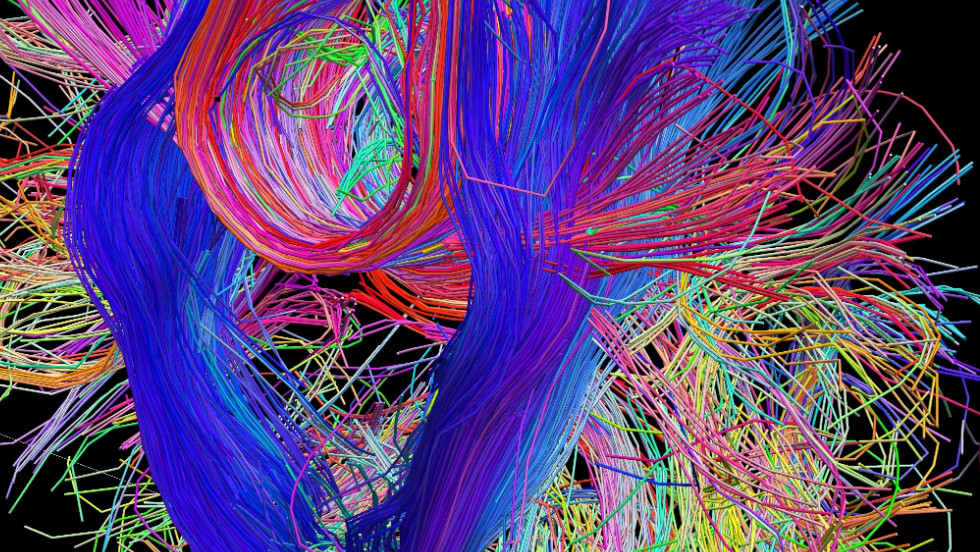Essay: Appreciating the public self

All cultures have traditions, educational methods, and drillings that aim to improve the members of that culture. The development of a person or the improvement of the humankind is a process of civilization. Due to an erroneous self-image and an overvaluation of so-called “facts,” we are well on our way to destroy some of the elements that have been the building blocks of civilization.
The overvaluation of facts, or the usefulness of things, is an important phenomenon that I want to point out with the term factischism. It means that we attribute objective value to externally observed facts and that we deny objective value to the inner experience or our inner world. We regard the inner experience as subjective, in the sense that it is not truthful and objective.
This factischism is at the root of several crisis phenomena and manifests itself in all kind of areas. Why does education fail to prepare children for their future? Why is it that politics have become a joke, powerlessly played by the media? How come we have a government lacking the self-respect to fire mall functioning officials? Why are the elderly in the wealthiest countries of the world so badly treated? Why is there lack of direction when it comes to bringing up our children? All these things are related to one and other. However, we are not allowed to point at the connection without fact-based research.
Wise men and women have predicted this crisis in our society. They are capable of judging experiences, noticing proportions, and using their theoretical ability to make a razor-sharp analysis. But, we do not longer believe in these abilities, simply because we want to see the facts. In some cases this is correct, but, it requires wisdom to decide whether facts can give definite answers or when qualitative insight can be decisive. In this essay, I want to make room for the value of the qualitative insight, not based on fact-based research but on careful argumentation based on the experience of a human being.
Every person is a living laboratory and has many possibilities to examine himself and thus the phenomenon human. In principle, that means that every human being possesses wisdom about the state of affairs of his inner experience and about the situation in the world in which he is situated. Know thyself, and you know the whole of mankind is an ancient wisdom.
In most cases, scientific studies on peoples behavior don’t go beyond comparing and establishing the things that we can measure and observe easily. They establish correlations if they are verifiable in the numbers. If we choose this route, we have to wait for an infeasible amount of measurements and verify myriad correlations.
Throughout cultural evolution, cultures have shown their strength by consolidating their qualitative insights. Cultures cherish wisdom about many areas of life without needing a scientific corroboration. The thing that is important is whether or not the people themselves can confirm the knowledge about their daily life.
One person – potentially -possesses the entire arsenal of possible human actions, emotions, and thoughts. When there is a crisis it naturally appears in his soul. One person has an awareness for the whole of humanity and can make a sovereign judgment about everything he is confronted with.
The modern man is so fragmented, that he is no longer master in his own castle.
Perhaps at the root of the crisis, we find that we no longer make that qualitative judgment. Maybe the modern man is so fragmented by a multitude of commercial forces, and scientific analyzes that he is no longer master in his own castle.
Man is blindsided by a scientific discourse that, by appealing to “statistical truths,” describes his existence. The inner experience which is essential to our being will never be a part of that external description that is a product of sciences.
A unifying judgment that includes our inner and outer experience is no longer considered valuable on the grand scheme of things. Philosophy is the way to restore that unifying judgment.
Developing the inner world
The sharp separation between our thinking, our feeling, and our actions, is suggesting a clear insight into what thinking is. It also suggests that our actions occur only outside of us, and our thinking and feelings inside us; in our interior world. In reality, we experience a mixture of these phenomena. We need to pay attention to these processes if we want to understand what it means to shape a unifying judgment.
Your inner world is not just that what is innate, it is mainly developed by stimuli from the outside. When children are deprived of communication in their first years, their personal development will be far behind from other “normal” developed children, and in some cases, the children even die of this cause.
The inner self knows all kinds of layers that need to be stimulated and awakened. The eye of another human being looking at me is an example of this. When a mother looks at her child, she creates a distance between her and her child. The child then experiences the first layer of the self; it is looked at. The rest of his life, he will have countless experiences caused by the eyes of others looking at him.
You can be looked at lovingly, needy, hateful, neutral, warm, horny, etc. You have learned to decode and understand the looks of others, and they awaken different inner experiences. The feeling of “sympathy” is an experience that is awakened within the inner self by the look of another human being. So, the origin lies in the inducement from the community.
You are slightly shocked when you find out someone was observing you while you were laughing by yourself. The look of the other has a direct effect on your feelings. We internalize the look of others.
When Luigi Pirandello discovers at a later age – when carefully inspecting himself in the mirror – that his nose is crooked. He is so moved by this discovery that he rushes to all his acquaintances to tell them about it. They react indifferently and let him know they have known that fact for ages. Luigi Pirandello is shocked, an unknown layer of his conscious is uncovered; from now on he is aware of a new perspective that has a profound effect on him. For the first time, he has the realization that others see him differently than he sees himself. The awareness of this gap will never leave Pirandello.
The look of the other
My inner-self contains layers that are developed through the look of other human beings. Marcel Proust gives many examples of inner layers that are evoked by others looking at him. Most important for him is the look of his mother. Everything he discovers in himself is judged through the eyes of his mother, he mimics her desire.
The success of social media is built on this principle. When you are in front of a camera your whole being changes, a new awareness opens up to you caused by the gaze of thousands of others looking at you. A person viewed by many feels the moral judgment of the community.
On the street, in front of the camera, on the stage, as a speaker; we all feel stimulated by an ideal image of the public. Children in front of a camera change attitude, they will exaggerate everything they do. A camera can make some people experience themselves so strong that they hardly dare to look at the footage on a screen, and others fancy themselves as “more real” on a screen.
By looking at each other, we seal and strengthen the moral climate.
The admonishing statement “The people are looking” points to our mimetic nature and the power that the look of the others exerts on us. The look of the other is not, as Sartre suggests, a purely hostile gaze. The look of the other has formed me and is always present in my experiences.
By looking at each other, we seal and strengthen the moral bonds.
Making community
The other person can not transmit meanings and dimensions just by looking. They have to fit into a coherent set of meanings that match previous experiences. Meaning is developed historically.
When somebody gives me inviting looks, I have to understand their meanings, our inner worlds must correspond with each other.
Through communication, we strengthen the correspondence of our inner worlds. The comunality of our inner world is, therefore, a condition for and a consequence of meaningful communication. Culture is the invisible space that comprehends all signs and meanings existing in(between) the inner worlds of the people. This space is not something we can see, it is something that can be experienced from within by those who participate in it.
The look is one of the possibilities through which we can enter in the space of collective meaning. This implies that in strong cultures people look each other in the eye easily, and in weaker cultures, people look away and avoid this kind of contact. In most larger cities, looking people in the eye quickly becomes an unwanted intimacy, whereas in most villages this is the desired action. It is evident that in cities fewer common meanings are maintained by the people.
In strong cultures people look each other in the eye, in weak cultures, people look away.
In the villages, people easily hold on to the look of the other while they share all kind of intimate details about their daily life. They apparently do not feel very different from each other, and the feeling of being the same creates a strong bond between them. The inner world of the townsman is, therefore, less developed due to a lack of shared codes and meanings.
The massive dance parties clearly demonstrate that also the townsman has the lasting urge to have a communal experience of his inner world. Entire tribes fall back on ancient rhythms to bond with each other.
Tradition and the inner world
Our inner world is both, the condition for communality and the result of it. That is why traditions are important. Thanks to traditions, the inner self is crystallized within us. Crystals are formed by putting a thread in a solidifying substance at the right moment. Traditional communities educate their children by feeding them with crystallization nuclei.
Children can learn to experience their inner world, trough the meanings offered to them. The tensions between lust and limitations, for example, are solved in meaningful actions, which the others of the community recognize and sympathize with. The culture provides interpretations of inner and outer situations. A boy, in the midst of his impetuous puberty, will be able to restrain hormonal pressure in his inner being by imitating his father.
When the language of a culture holds many nuances concerning physical experiences, then not just the vocabulary of a child, but also the experience of that child will be rich in that domain. The stronger your community confirms your experience, the stronger your inner being is fixed in a certain direction.
If there is just a limited amount of shared meaning, it is difficult to reach in-depth communication. We all know the frustrating feeling when we want to articulate a certain thing in our native language, but, we can’t translate it to the foreign person we are talking to: it feels as if a part of you is amputated. The relatively empty communication that will occur leaves you empty, because the contact with the other person remains relatively empty.
The “private” inner world
It seems like our inner world is on the outside. Facial expressions naturally play a major role, the nuances are crucial. But, it is mainly the common experience that brings unity.
The inner and the outer world are in a direct relationship. The fact that we do not see that relationship is caused by blind factischism. The outside world is “easily” perceptible and therefore a fact, the space of the inner world is invisible and therefore subjective.
The inner world, according to the factischists, is something private for each individual and you should not interfere with it. In the inner world, private considerations and choices are made, shielded from the outside. You shall not touch the highest value for an individual, his “freedom of choice”.
Freedom of choice is taken to an extreme and expressed in slogans such as “being yourself” “everyone has the right to his own opinion” or a counter-argument like “that is subjective”. The one person wants to be in a marriage with himself and the other wants to be buried during a disco celebration. It is clear that we value the identical less than the unique, and that a phobia for traditional rituals has become mainstream.
Nevertheless, we feel the urge to share meanings and feel the bond between the inner and outer world. The bond should be restored and philosophizing is the restoration of that bond.
Usefulness is the great danger
Whether or not you become a better person by eating, is not necessarily obvious. You will undoubtedly starve without food. By eating you maintain the most basic conditions of being a human. Taking care of yourself is first and foremost about the care that you give to your food. Eating like animals, purely aimed at the functional intake of nutrients is not a typical human activity.
Precisely the traditions and customs around the food and the preparation are characteristic for a human. When a person neglects all food-related activities such as rituals and decorations and gulps his food in like an animal, we see it as a bad token. Taking your time and space for the daily meal indicates that you “give meaning to something useful.”
To focus exclusively on what is useful is the greatest danger that threatens us! The effort one takes for so-called “useless” things, such as a nicely made-up table, apart served dishes or a delicious wine, ultimately mean an effort with which we express our self-esteem. Raised above an atmosphere of usefulness, you confirm your self-respect in the way you deal with your food.
When we dine with others, we feel how it works. The collective enjoyment of a meal creates a bond between people. From your inside (literally and figuratively speaking) you grasp how others also enjoy the meal, this deepens your sense of joy. This awareness of the group in the presence of food is undoubtedly the result of our evolution: the strengthening of the community after fierce hunting or hard labor is a universal happening. Just like all those evolutionary instincts, the power of culture is to ritualize and enrich these meaningful experiences. Eating together makes us a better (culture) person!
It seems that you are a full-fledged person as soon as you can consume.
In many care homes, the ritual of eating violates human rights. Far away from the domain of collective meaning and shared experiences, only the strictly necessary acts are executed. The filling of stomachs, the washing of bodies, and the drugging of confused people. The meaning of the inner experiences of these people is not perceived and therefore not relevant.
The respect for the elderly has been an incentive for many cultures and religions for centuries, the lack of it, is a crisis phenomenon. Most elderly lack nothing, but in many cases, their inner world is ignored and flattened out.
Also in the upbringing of children, there is a lack of focus on inner development. The six-year-old is considered a fully conscious human being. Educating him in his desires is no longer needed, we instead ask: What do you want? It seems like you are a full-fledged person as soon as you can consume.
Education to grow your character
In traditional cultures, huge investments are made to engage young people in the meanings of the culture. Therefore it is normal that the very best and most respected members of that community are assigned to that mission. Generally spoken, we can state that in today’s society, we do not appreciate this sacred task.
Knowledge is moralizing by nature.
Knowledge and wisdom are no longer valued, today’s education is all about skills. Education has become an instrument. The consequence is that the pupil is a product that rises in value when we add some modules to it.
However, knowledge is not something you can take in as a cookie. It is the wisdom of culture on how to improve humankind. Knowledge is, therefore, moralizing by nature. It gives us clues on how we should interpret our lives: “see it like that,” “view it from this perspective,” “order that phenomena in that way,” “you must understand health in this way,” “use this terminology” etc.
Knowledge is the place where the bond between the inner world and community is crystallized and developed further. Education is therefore pre-eminently the place where our personality and character can grow and develop. The way in which you can deal with knowledge, the appreciation of it and the love you feel towards it are character issues.
In education, the seeds are sown for the bond between the person and their culture, the most developed personalities in these cultures should lead and guide these processes in youngsters. We cannot be directive without a powerful spiritual gravity center which works in a crystallizing way. Culture must comprise a coherent set of meanings. The invisible space must be clearly structured.
The school doesn’t prepare you for society, in the learning environment the new society is created. Energy must be invested in that moment. In the learning environment, there must be bonding between the adolescent and the endless reservoir of knowledge. It is a project that leads us into the future, and bonding is the magic word. The youngster must internalize the knowledge to make the connection with the new society and make a bond between his/her thinking, acting, and feeling. The school or learning environment must be the “think tank” where strong developed personalities help young people shape the culture of tomorrow. The school is the place where society is created.
The philosopher John Dewey emphasizes the possibility of restoring bondage between the individual and the community, by adopting a different view on factuality. Meaning is formed in the experience; the experience is a transaction between organisms and their environment. Experience is the connection between the self and the culture, and the culture structures that experience. Dewey emphasizes the importance of establishing a bond between the inner and outer world within education or learning environments. In his lab school, thinking is no longer the master of feeling. The experience itself becomes the master.
The school is the place where society is invented.
Education is focussing a lot on the development of self-awareness through thinking. Most of the knowledge offered to youngsters is fatal for their capacity to initiate vital interactions with their environment. Even if a modern school provides practical applications in their curriculum, those applications are often nothing but theoretical constructions that the student must experience as practical. The pupil alienates more and more from the possibilities and the complication of the authentic experience.
According to Dewey, the experience that is the model for all experiences is the aesthetical one. The aesthetic experience contains crucial subtleties and possibilities that a person has to go through to come to that experience. We think of drawing and painting and sculpting as side-issues, because we overvalue thinking. But, thinking is just one possible mode of experience. We overvalue it because it is the part of an experience that is most easily reproduced. In the view of Dewey, thinking is merely the preparation of possible actions.
Also for the philosopher Leonard Nelson the school is the place where the unfolding inner world of the child attaches itself to culture. The education consists of an intellectual, a moral and an aesthetic upbringing. Man must become a moral being. It is a duty to form your character. The world will be a better place when we realize our values. The Ideal of Nelson is in its essence “Bildung.” Ultimately it is nothing but a reasonable arrangement of life in which there are three essential values to pursue; truth, justice, and beauty.
Both Nelson and Dewey argue for education with a focus on personal development rather than on the curriculum. A fixed program is out of the question. The Socratic Design method and especially the associated dialogues are utterly appropriate to realize this form of education. A clear culture is needed for young people to bond with themselves, with their fellow pupils, and with the culture of knowledge. For this process to happen, we need eminent teachers who can be present during exciting knowledge creation. This school is a research community.
Unifying inner and outer world
The crisis in bonding that results in all kinds of desintegration problems can be countered in several different ways. The phenomena occur in our inner self. So, we have to start to value this inner part of our experience like an “objective given.” Our inner world is directly connected to the factually, visible world. We must not regard the outside world as a factuality existing apart from and outside of ourselves, but the world is a part of our inner being.
The realization of unity in ourselves, demands the installment of a value horizon in our culture.
Philosophy is the search for that unity and is thus an attempt to shape a better human and world.








